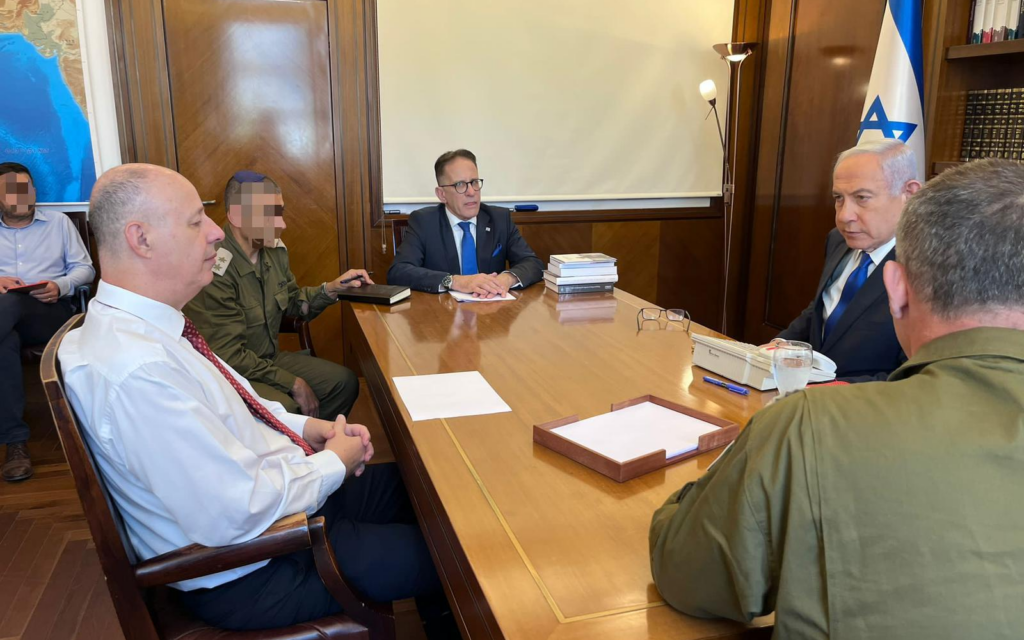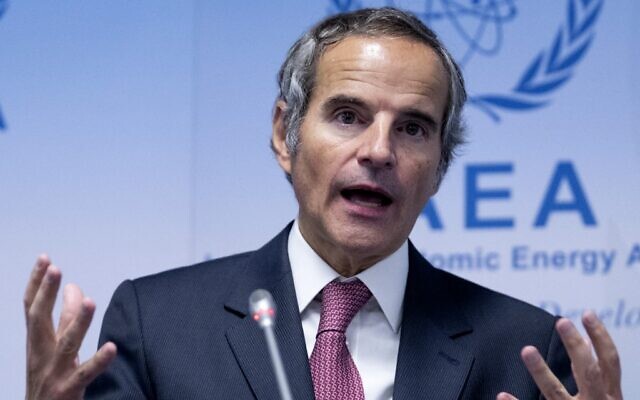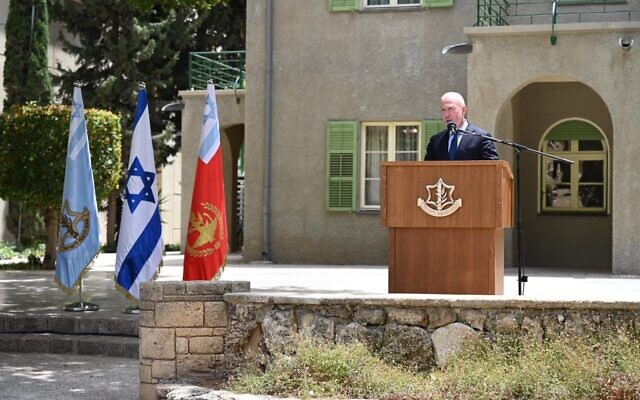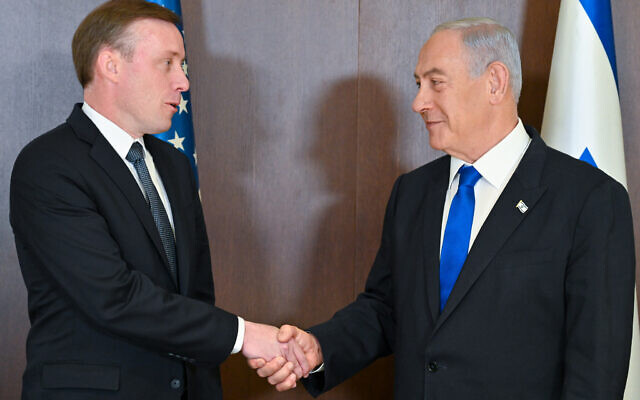Casting wary eye on IAEA, Israel fears US laying groundwork for new Iran deal
Jerusalem worries Washington may be bowing to Iranian demands for a new nuclear pact, and is concerned that Saudi normalization may be used to compensate for its objections

Signs are pointing in a worrying direction for Israel. A smattering of reports, meetings and announcement appear to indicate that the US is moving toward a new deal with Iran over its nuclear program, and Israeli officials have broadcast fears that Washington is bowing to key demands from Tehran to finalize the pact.
The question for Israeli policymakers is how far along that path the sides have traveled.
Israeli officials are clearly spooked, especially after news emerged that the International Atomic Energy Agency decided this week to close its probe into traces of human-made uranium found at Marivan, some 525 kilometers (325 miles) southeast of Tehran.
Analysts had repeatedly linked Marivan to Iran’s secret military nuclear program and accused Iran of conducting high-explosives tests there in the early 2000s.
Last year, Iran’s President Ebrahim Raisi said in no uncertain terms that closing IAEA investigations into nuclear particles found at suspected nuclear sites was a prerequisite to reviving the 2015 JCPOA nuclear deal.
The IAEA’s conclusion that the particles may be leftover from mining at the site decades earlier, as Iran had argued, won few buyers in Israel, which insinuated that the UN watchdog could no longer be trusted after selling out to meet Iran’s demands.
“We are extremely disappointed by the damage done to the IAEA’s professional standing,” an Israeli official told The Times of Israel on Friday, one day after Foreign Ministry spokesman Lior Haiat accused IAEA Director-General Rafael Mariano Grossi of “yielding” to Iranian political pressure.

Haiat warned that the watchdog had “severely damage[d]” its credibility.
Israel lobbied hard against the 2015 deal, which the US pulled out of in 2018. Subsequent efforts by Europe and US President Joe Biden’s administration to revive the agreement and bring Washington back into the pact have also been met with protests from Jerusalem. Israel argues that diplomatic efforts fall short of preventing Iran from obtaining a nuclear weapon, pushing instead for a credible military threat.
Comments from Israeli officials warning of developments in Iran that could spark military action have become amplified in recent weeks, amid signals that Washington and Tehran are moving into a new chapter in the on-again, off-again nuclear talks.
“I hear all the reports about Iran, so I have a sharp, clear message for Iran and the international community: Israel will do what it must to prevent Iran from getting a nuclear bomb,” Prime Minister Benjamin Netanyahu said in a short video message Thursday.
Defense Minister Yoav Gallant also responded to what his office called “recent developments regarding the Iranian nuclear issue.”
“The dangers facing the State of Israel are intensifying and we may be required to fulfill our duty in order to protect the integrity of Israel and especially the future of the Jewish people,” he told an Israel Defense Forces officer promotion ceremony Thursday.
Axios reported this week that White House Middle East envoy Brett McGurk was in Oman this month to discuss with Muscat the possibility of them bringing the Iranians back to the table.
The report cited three Israeli officials expressing concerns that the sides are discussing a possible “freeze for freeze” interim deal as a quick fix to reduce tensions. The US, which does not hold direct talks with Iran, denied to Axios discussing an interim deal or sanctions relief with the country.
Neither Oman nor the US commented publicly on the visit.
The sultanate — which sees itself as a mediator between Iran and the West — was reported to have hosted secret US-Iran talks a decade ago. This eventually led to the signing of the deal known as the Joint Comprehensive Plan of Action, which gave Iran relief from international sanctions in return for curbs on its nuclear program.

At the same time, efforts by the US to broker Israeli-Saudi normalization appear to have intensified, in what some see as a linked development intended to compensate Israel for the nuclear deal.
The Biden administration has been working to broker a deal on direct flights between Israel and Jeddah as part of broader normalization efforts, which US National Security Adviser Jake Sullivan calling it a “national security interest” earlier in May.
Strategic Affairs Minister Ron Dermer and National Security Adviser Tzachi Hanegbi also traveled to DC this week to meet Sullivan and other top-level officials from the White House and State Department to discuss the Iranian nuclear threat and peace prospects with Saudi Arabia.

But an Israeli official expressed concerns this week that movement toward normalization with Saudi Arabia was being used as a gesture to mollify Jerusalem’s consternation over a new nuclear deal.
However, a European diplomatic official told The Times of Israel on Friday that the sides are not on the brink of a return to the JCPOA or another agreement.
“I think it’s the beginning of the discussion,” said the official. “It’s the beginning of a de-escalatory process.”
“No one is rushing into anything.”
Jacob Magid contributed to this report.
There's no paywall on The Times of Israel, but the journalism we do is costly. As an independent news organization, we are in no way influenced by political or business interests. We rely on readers like you to support our fact-based coverage of Israel and the Jewish world. If you appreciate the integrity of this type of journalism, please join the ToI Community.

We’re really pleased that you’ve read X Times of Israel articles in the past month.
That’s why we started the Times of Israel eleven years ago - to provide discerning readers like you with must-read coverage of Israel and the Jewish world.
So now we have a request. Unlike other news outlets, we haven’t put up a paywall. But as the journalism we do is costly, we invite readers for whom The Times of Israel has become important to help support our work by joining The Times of Israel Community.
For as little as $6 a month you can help support our quality journalism while enjoying The Times of Israel AD-FREE, as well as accessing exclusive content available only to Times of Israel Community members.
Thank you,
David Horovitz, Founding Editor of The Times of Israel









